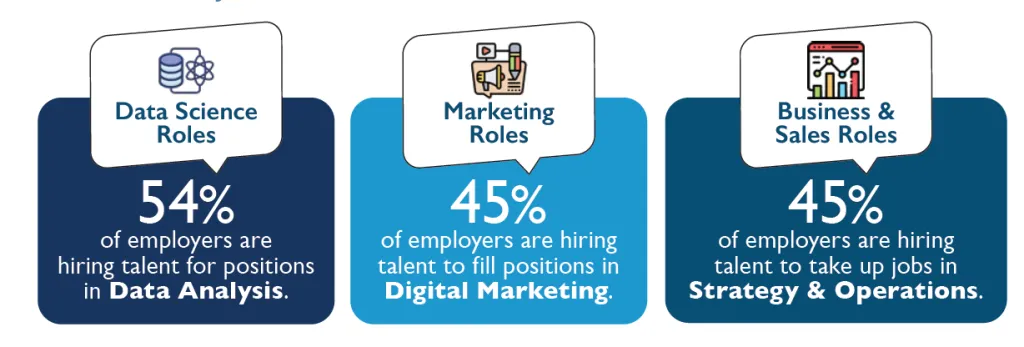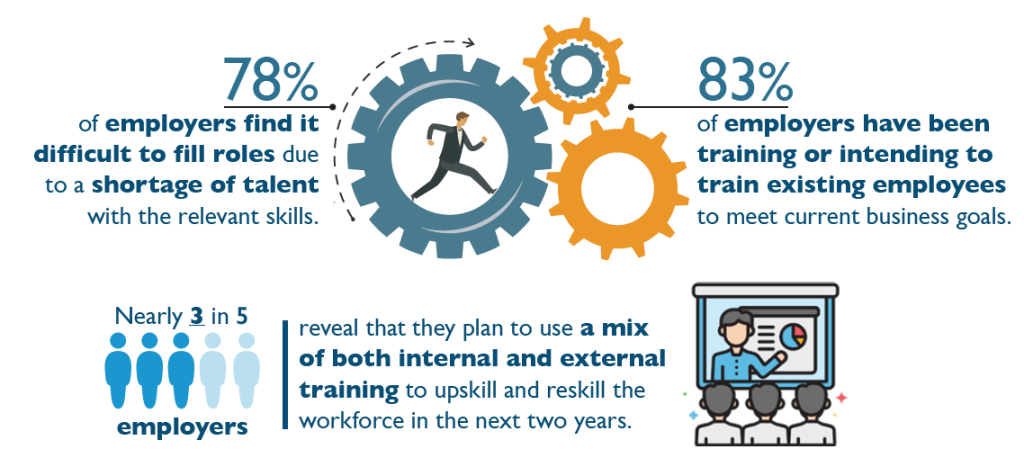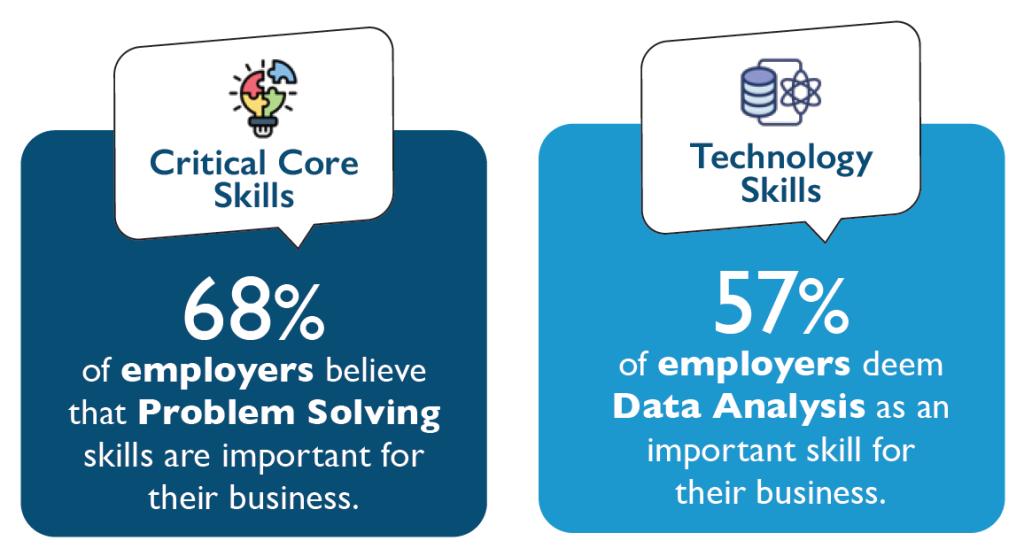In March this year, the number of job vacancies continued to rise, reaching new highs of 128,100, according to the Ministry of Manpower in its latest labour report.
In fact, the number of job vacancies is almost triple the number of unemployed in Singapore, which is the highest on record since 1998!
So what are these jobs? What is the latest industries that are hiring? They can be found in construction and manufacturing, financial services, information & communications, public administration & education, and professional services, with a mix of professionals, managers, executive and technician (PMET) roles, as well as non-PMET as well.
With such a wide spread of choices, and it being a jobseeker’s market, it can be hard to figure out what’s next for your career.
Some tips can be gleaned from NTUC LearningHub’s Emerging Jobs and Skills report, which was released earlier this year. This report includes inputs from 200 employers from a broad range of employers across several industries, which also reveals some of the top roles they’re looking to fill.
Here’s some key highlights we garnered from their report.
What are the top job roles Singapore employers are looking to fill, and what are they like?

Across industries including manufacturing, built environment, trade & connectivity, essential services, modern services and lifestyle, the top roles employers are looking to fill are in data science, marketing, and business and sales.
Read these stories below for tips about what these roles are like, and how you can get them!
Hot Jobs: Why Are Data Analysts in Demand and How to be One
Want to Thrive in Digital Marketing? Here Are the 5 Technical Skills You’ll Need
4 Practical Job Application Tips For Sales Managers and Executives
What Are the Top 10 Job Vacancies in Singapore Right Now, and How Much Will They Pay?
Does upskilling matter to Singaporean employers?

Yes. Separately, 49% cited reskilling and upskilling employees with relevant skills as a key strategy to focus on amidst Covid-19.
More than half also believed that reskilling and upskilling employees was the top consequence of digital transformation, and 40% of employers perceived that technology adoption only leads to upskilling or reskilling and not to layoffs.
However, 78% of employers found it challenging to fill roles due to a shortage of talent with the relevant skills.
Read on more below about reskilling and upskilling, and why you should pay closer attention for your own career.
What is Upskilling & Reskilling: The Complete Guide to Career Growth
Upskilling and Reskilling: Know the Difference and Why They’re Important for Career Resilience
Upskilling Digitally: What Certifications and Courses Matter in Singapore
What skills do Singapore employers deem important for their businesses?

Additionally, analysts found that 98% of employers have agreed about a greater need for employees in hybrid roles to meet their business objectives in the next two years.
In line with this, 79% are looking to hire talent with a broader set of skills to take up hybrid roles in the next two years.
In terms of specific skills, 68% are hunting for employees with good problem-solving skills, while 57% deem data and tech as important skills for their business.
Here’s a list of stories that will help you nail down the skills they’re looking for and nab the job you want. Good luck with the job hunt! Find out what is the latest industries that are hiring and what skills are required to getting these jobs.
Transferable Skills: What Employers Are Looking For and How to Develop Them
Here Are the Top Tech Skills You Need for Your Resume
Want to be More Employable? Brush Up on Your Project Management Skills
The Top Soft Skills Employers Value in Fresh Graduates















